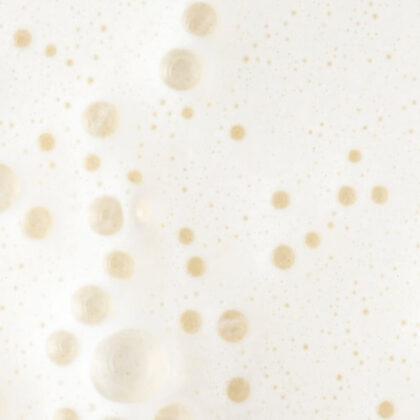
Lactose intolerance is a common digestive disorder affecting millions of people worldwide (almost 75% of the world's population). But what is the origin of this phenomenon and what role do hereditary traits play in its development? Let's delve into the mechanisms of this condition and discover its secrets.
Insights into the origins of lactose intolerance and its hereditary characteristics
What is lactose intolerance?
If you're a regular reader of our blog, you'll be familiar with this concept, but let's have a quick reminder for new readers 😉
Lactose intolerance is a condition in which the body is unable to digest food efficiently. lactosea sugar found mainly in dairy products (but also in charcuterie). This inability results from a lack or reduced production of lactasethe enzyme needed to break down lactose for optimum intestinal absorption.
Origins of lactose intolerance
Human evolution
Historically, the ability to digest lactose was limited to infants and young children. However, with the advent of agriculture and cattle rearing, certain human groups (mainly in the Caucasus region) developed a genetic mutation that enabled them to produce lactase continuously into adulthood.
This mutation has evolved independently in different populations, notably those of European, African and Middle Eastern origin. Populations whose ancestors raised livestock generally have a higher prevalence of lactose tolerance. On the other hand, groups whose traditional diets were low in dairy products retained a poor ability to digest lactose in adulthood.
Hereditary characteristics and risks
Hereditary traits play a major role in susceptibility to lactose intolerance. The genes responsible for lactase production are located on chromosome 2. Genetic variations in this region can influence the body's ability to produce lactase.
For example, some people have mutations that result in reduced or absent production of lactase in childhood or early adulthood, leading to lactose intolerance. These genetic variations can be inherited from the parents and are often observed in families where lactose intolerance is more common. Children born to lactose-intolerant parents have a higher risk of developing the condition.
Other individuals may inherit versions of genes that favour continued lactase production into adulthood, giving them prolonged lactose tolerance. Populations with a high prevalence of lactose intolerance often share a common genetic background.
People of European descent are statistically less likely to develop lactose intolerance than those of African, Asian or Native American descent. However, even within European populations, genetic variations exist, which explains why some people of European origin can also be lactose intolerant.
Day-to-day diagnosis and management
The diagnosis of lactose intolerance is often based on clinical symptoms such as bloatingThese digestive problems generally occur in the first few weeks of life. Generally, these digestive problems occur in between 15 minutes and 4 hours after eating high-risk foods.
Lactose tolerance tests may also be carried out to confirm the diagnosis.
On a day-to-day basis, managing lactose intolerance mainly involves avoiding the following foods containing lactose or use lactose-free substitutes. Many dairy products are now available in lactose-free form, enabling people with lactose intolerance to enjoy the nutritional benefits of milk and its derivatives without the undesirable effects.
To this day, lactase supplementation remains the best method of improving lactose digestion without depriving ourselves of our favourite foods.
➡️ Click here to find out more about lactase supplementation💊
Conclusion
Lactose intolerance is a complex digestive disorder, influenced by genetic and environmental factors. Hereditary traits play an important role in the ability of an individual to develop lactose intolerance and in their sensitivity to lactose. Understanding the origins of this condition can help you to better manage digestive problems and adapt your diet accordingly.
What is lactose intolerance?
This is the inability to digest lactose, the milk sugar, due to a lactase deficiency in the small intestine, causing digestive problems after consumption.
Why is this intolerance largely hereditary?
It depends on genes located on chromosome 2: some variations allow lactase to persist into adulthood, others do not, and these mutations are passed down through the family.
Where do the tolerance mutations in certain populations come from?
They appeared independently with cattle rearing, in Europe, Africa and the Middle East, favouring the digestion of milk in adulthood.
What is primary versus secondary alactasia?
Primary alactasia is genetic and permanent, linked to the natural drop in lactase after childhood. Secondary alactasia is acquired through disease, infection or treatment that damages the intestinal mucosa.
Is this intolerance irreversible?
Yes for primary (hereditary) alactasia, because lactase does not recover. However, secondary alactasia may be temporary, if the intestinal mucosa repairs itself.

Hello, I'm Vincent
Like you, I'm lactose intolerantI know exactly what you're going through and the difficulties you encounter on a daily basis. For over 10 years, I've been helping our customers to use our dietary supplements and giving advice and tips on how to improve their digestive comfort. I'm also a keen cook and gourmet, so you'll find my favourite recipes for a lactose-free diet in this blog.
Lactose intolerance is not inevitable! With LACTOLERANCE you can digest with complete peace of mind






